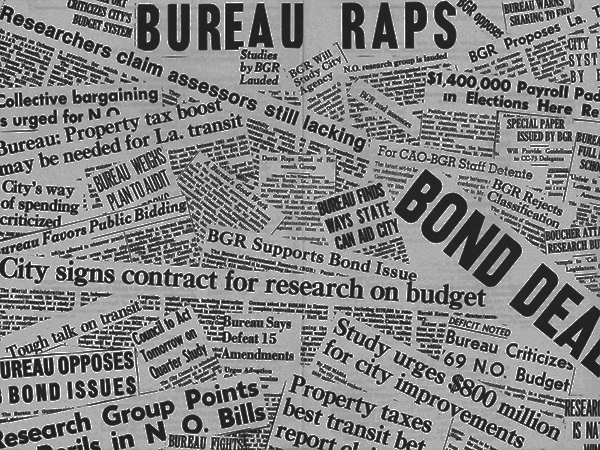
New Orleans City Council wants nonprofits to pay more in taxes, but obstacles are many
By Jeff Adelson
Source: The Times-Picayune | The New Orleans Advocate
September 24, 2019
The New Orleans City Council is looking for ways to get nonprofits to contribute more to the city’s bottom line — the latest in a long string of attempts to get properties that are exempt from taxation to kick in for public services.
A discussion at a council committee meeting on taxes Tuesday focused on ways to solve what has been a perennial problem in New Orleans: wringing money from the thousands of properties owned by tax-exempt nonprofits, such as private schools, churches, fraternal organizations and charities.
The issue has gained a renewed urgency as Mayor LaToya Cantrell’s administration has made a push for new revenue sources to fund infrastructure improvements and thousands of New Orleans households are facing higher property taxes because of increases, in some cases huge, in their property assessments this year.
“People are feeling the burn so bad that they can’t afford to live here anymore,” Councilwoman Kristin Gisleson Palmer said. “If we don’t have additional revenues coming in, we can’t keep asking property owners to fill the hole.”
Little firm action came from Tuesday’s meeting, though council members endorsed the idea of creating a task force to look at ways of getting nonprofits to pay up.
“My goal here is for us to collaborate and work together on this,” Councilwoman Helena Moreno said to a group of nonprofit executives at the hearing. “You all are right, there are some amazing nonprofits providing a significant amount of support for the people here in our city. The last thing we would want to do is to move forward on something that could negatively impact them, that could hurt them.”
She added, “We need to figure out what is workable and what could be done.”
Her position was echoed by other council members.
Roughly 4,400 properties worth about $3.9 billion are off the tax rolls in Orleans Parish because of the nonprofit exemption, Bureau of Governmental Research President and CEO Amy Glovinsky told the council.
BGR has long pushed for changes in the way the state and city handle the nonprofit exemptions, arguing that allowing many such groups to avoid property taxes increases the burden on other property owners.
Among the problems with the current system are an expansive view of what constitutes a nonprofit — fraternal organizations and professional groups are included alongside organizations that do more directly charitable giving — and loose rules that exempt properties owned by nonprofits from taxation even if they’re used for commercial purposes not directly related to the group’s charitable mission.
State Sen. J.P. Morrell, on the other hand, argued that the Assessor’s Office could do more to crack down on improper exemptions.
But Assessor Erroll Williams said his office is already doing much of that work. He said his office routinely checks that nonprofits are properly registered with the Internal Revenue Service and that their status is currently applicable. If not, he said, the office cancels their exemptions.
Williams said he is aggressive about going after nonprofits that appear to be abusing the rules. “No assessor’s been sued more than I’ve been in this state, when it comes to treatment on exemptions,” he said.
But Williams said his hands often are tied by state laws and the way the courts have interpreted the state’s regulations.
For example, critics of how tax exemptions are handled argue that vacant land owned by nonprofits should be taxed because it does not further the mission of the groups. But decades ago, in a case brought by Orleans Parish assessors, the courts ruled that vacant parcels owned by Tulane University could not be taxed because if the properties were sold, the money would go to further the university’s educational mission.
That leaves the council and administration few options in getting nonprofits to contribute to city coffers.
One option would be getting voluntary agreements by some nonprofits to contribute money. Another approach would be fees, such as the drainage fee suggested by the Sewerage & Water Board, that would apply to all parcels regardless of their tax status.
“In the past, there has not been much collaboration between elected officials and nonprofits. We want a place at the table,” Tulane Vice President for Government Affairs Sharon Courtney said.
Fair Use Notice
This site occasionally reprints copyrighted material, the use of which has not always been specifically authorized by the copyright owner. We make such material available in our efforts to advance understanding of issues and to highlight the accomplishments of our affiliates. We believe this constitutes a “fair use” of any such copyrighted material as provided for in section 107 of the US Copyright Law. In accordance with Title 17 U.S.C. Section 107, the material on this site is available without profit. For more information go to: US CODE: Title 17,107. Limitations on exclusive rights: Fair use. If you wish to use copyrighted material from this site for purposes of your own that go beyond “fair use,” you must obtain permission from the copyright owner.
